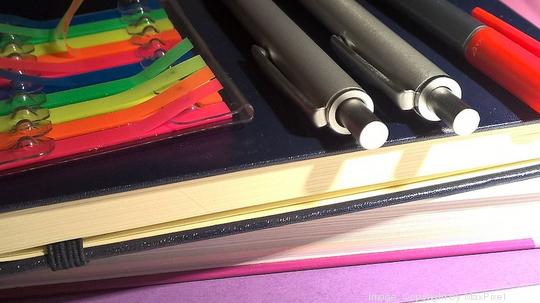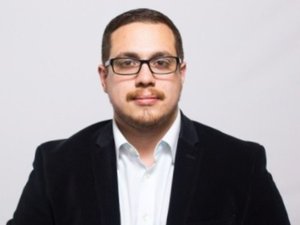
It's hard enough launching your first venture, but imagine doing that while balancing a full-time college course load. It's not easy.
That's why local universities like American University and Georgetown host their own on-campus entrepreneurship events and programs, as a way of helping students find a community of likeminded entrepreneurs going through the same thing.
D.C. boasts a wide range of student-led ventures. From an app that lets you book time at on-campus fitness centers to a system that gives you personalized credit card advice, student-led ventures are everywhere.
As local students prepare for a new year ahead, we reached out to a handful of entrepreneurs who got their start on campus to see what resources they loved and what advice they wish they had going into their startups—
Are you a student entrepreneur with advice? Let us know!
Rachel Koretsky, founder of upace
Korestsky graduated from American University Kogod School of Business in 2014, and since then, she's been building up her app, expanding it into several campuses and building up her team to about 10 people.
"The American University Incubator was a tremendous resource when I started upace with mentorship, guidance and co-working space with fellow entrepreneurs.
DC Tech Meetup was another great resource that allowed me to pitch upace in front of 800 attendees which allowed for us to share our story and begin building our network in the city."
Max Frankel, founder of Max Points
Frankel graduated from American University in 2014 and that following summer he founded Max Points, his online system to help people find the best credit card for their financial situation. He named a few different resources when DC Inno reached out to him, including reaching out to other entrepreneurs, finding mentors, making use of university incubator programs, going to events and networking, testing your idea and making sure you hone in on your market.
"There are so many directions that you can take but you may find that one is much more viable and profitable. Identify this early and focus on it instead of being torn in many different directions."
Ann Yang, co-founder of Misfit Juicery
Yang started Misfit Juicery in a dorm room at Georgetown with her co-founder, Phil Wong. The duo realized there was a lot of "imperfect" produce out there—such as tomatoes that aren't perfectly round or carrots that bend a little bit. So Yang and Wong bought some imperfect produce and go to juicing.
Now, that venture is a blossoming business. Misfit Juicery just finished the Chobani food incubator a few months ago, and they have just landed a deal with Whole Foods to sell a few of their products in various locations.
"Halcyon Incubator is where we got our start. They are an amazing incubator for social entrepreneurs located in a renovated mansion in Georgetown. They also have programs that support artists, scientists and musicians. Their mission is to support and invest in creatives of all types. They "facilitate serendipity" — we met amazing people there including our close friends Up Top Acres who operate a rooftop farm in DC, Yoko Sen of Sen Sound who is working on sound design in hospitals and Coral Vita who is farming coral for reef restoration."
"The Georgetown Entrepreneurship Initiative has supported us since this was just an idea with grants from pitch competitions, mentorship, free interns and access to MBA students. We got our first investment check from a professor there! It was immensely helpful as students who didn't study business."
Phil Wong, co-founder of Misfit Juicery
Wong, who also co-founded, Misfit Juicery recalls how difficult it was for them starting out and how valuable it was to find a group of likeminded entrepreneurs who were experiencing the same things.
"I'd also add that fellow and former student entrepreneurs are some of the best resources because they can empathize with the student-specific challenges of entrepreneurship: moments of self-doubt, balancing campus life and friendships with entrepreneurship, etc."
"At the risk of sounding egotistical, I'd put us down as resources — people should feel free to email us. We'd be so, so remiss to not pay forward all the awesome help that we've gotten along the way."
Maria Rose Belding, co-founder of MEANS Database
Belding founded MEANS Database in 2013 while she was still a student at American University. The database works with restaurants and organizations that have extra food and pairs them up with food banks in the region that might need those exact food remains. Since launching the website in February 2015, Belding’s tech nonprofit has expanded to serve 48 states and D.C.
"You are a human being and you are capable of flaming out. You cannot burn the candle at both ends and expect your youth to shield your body of the consequences. (I got pneumonia four times in six months because I refused to take the time off my immune system needed to recover. Learn from my failures.)"
"Protect your physical and mental health. Sleep more than you think you need to. Coffee is not a food group. If you're a successful student entrepreneur, your college experience will be different than your peers', and that's ok. Don't try to seek normal, seek sanity and go from there."




